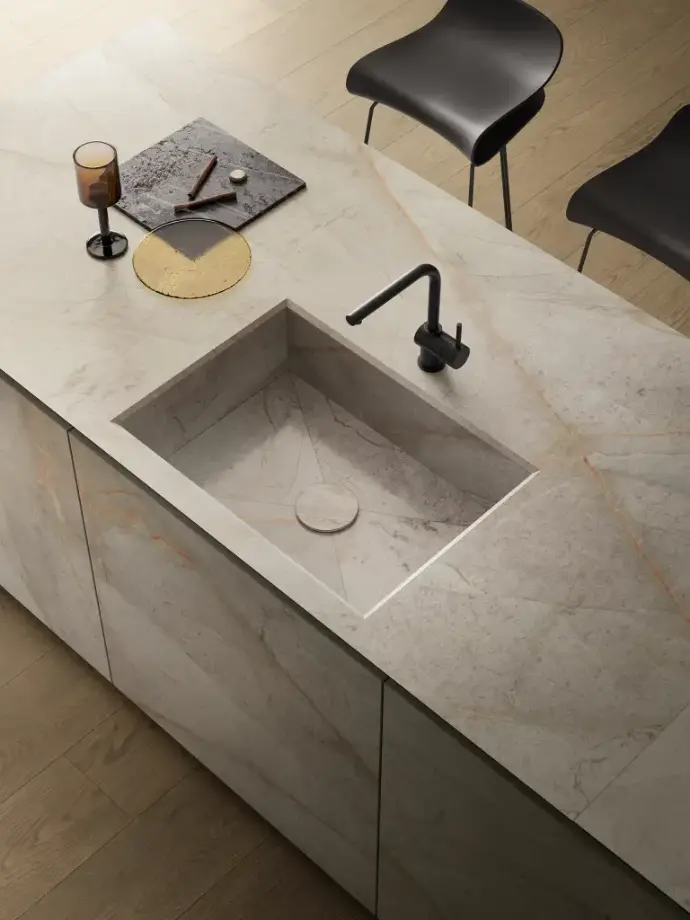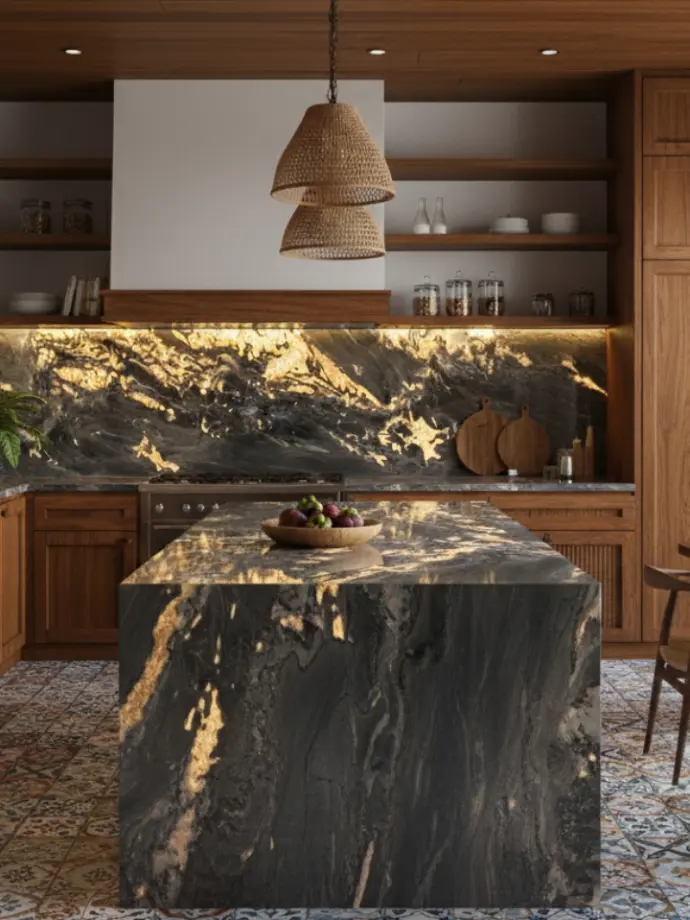You’re planning your dream kitchen, and you keep hearing two names: quartz and quartzite. They sound almost identical, and to make it more confusing, they can even look similar. So, what’s the real difference? And which one is the right choice for your home?
As stone experts, this is one of the most common questions we answer. While both are excellent, high-end choices, they are fundamentally different materials with unique strengths.
Let's clear up the confusion once and for all.
What is Quartz? The Engineered Powerhouse
Quartz countertops are a man-made, engineered product. They are created by combining about 90% ground natural quartz crystals with about 10% polymer resins and pigments. This mixture is poured into a mold, compressed under high pressure, and cured to create an incredibly hard and durable slab.
Think of it as: The best of nature, enhanced by science.
What is Quartzite? The Natural Beauty
Quartzite is a 100% natural, metamorphic rock. It is formed deep within the earth when quartz-rich sandstone is subjected to immense heat and pressure over millions of years. This geological process recrystallizes the sandstone into a dense, beautiful, and incredibly hard stone that is then quarried in large blocks, cut into slabs, and polished.
Think of it as: Mother Nature’s masterpiece.
Head-to-Head: Quartz vs. Quartzite
Here’s a direct comparison of the factors that matter most to a homeowner.
Feature | Quartz (Engineered) | Quartzite (Natural) |
Appearance | Consistent colour & pattern | Unique, one-of-a-kind veining |
Durability | Highly durable, less prone to chipping | Harder, more scratch-resistant |
Stain Resistance | Excellent (Non-Porous) | Good (Porous, requires sealing) |
Heat Resistance | Good (up to ~200°C) | Excellent (Can handle hot pots) |
Maintenance | Very Low (No sealing needed) | Moderate (Requires periodic sealing) |
Appearance & Design
If you want a specific look, like a solid white, a concrete grey, or a perfectly consistent marble pattern, quartz is your answer. Because it’s man-made, the colour and pattern of the slab you see in the showroom is exactly what you’ll get.
If you love the unique, unpredictable beauty of nature, quartzite is for you. Each slab has its own one-of-a-kind veining and colour variations, meaning your countertop will be completely unique.
Durability & Hardness
This is where it gets interesting. Quartzite is technically harder than quartz on the Mohs scale, making it exceptionally resistant to scratches. However, because it's a crystalline natural stone, it can be more brittle and prone to chipping on impact.
Quartz, thanks to the resins in its composition, is slightly more flexible. This makes it more resistant to chipping or cracking from an accidental knock with a heavy pot—a key advantage in a busy family kitchen.
Stain & Water Resistance
This is the biggest practical difference. Quartz is non-porous because the resins bind the quartz crystals together, leaving no gaps. This means liquids like wine or coffee can't seep in, making it naturally stain-resistant without ever needing to be sealed.
Quartzite is a natural stone and is porous, similar to marble. It must be sealed upon installation and then periodically re-sealed (usually once a year) to protect it from absorbing liquids and staining.
Heat Resistance
As a natural stone forged by heat, quartzite has superior heat resistance. You can place a hot pot or pan directly on its surface without fear of damage.
The resins in quartz are less resistant to high heat. A very hot pan (above 2000°C) can potentially scorch the surface or cause discolouration. It is always recommended to use trivets or hot pads with quartz countertops.
Conclusion: Which One is Right for You?
The choice between quartz and quartzite comes down to your priorities:
- Choose QUARTZ if: Your top priority is low maintenance, stain resistance, and a consistent, predictable design. It’s the perfect choice for busy families who want a beautiful countertop without the worry.
- Choose QUARTZITE if: Your top priority is natural, one-of-a-kind beauty and superior heat resistance. It's ideal for serious home chefs who love the authentic look of natural stone and don't mind the simple annual maintenance of sealing it.
Ready to see the difference for yourself?
The best way to make a decision is to see and feel these materials in person. Visit the Sinnostone showroom, and our experts can show you our full collection of both quartz and quartzite, helping you choose the perfect surface for your home and lifestyle.

